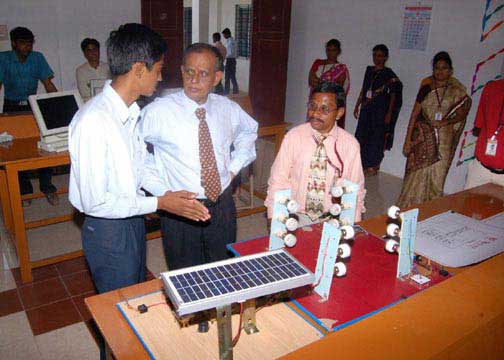- Written by madhu
- Hits: 2792
Conservation Is the World's Best Energy Source
The proverbial “quickest way to double the money is to fold it n put it back in the pocket” will hold true with energy conservation too. The world seems to have insatiable appetite for energy these days. Together the developed and developing world is spending a stupendous amount of money to develop new technologies and to produce energy efficient products out of it; future of new economic powerhouses like China and India depends on a steadily growing global energy supply. But where modern technology falls by the wayside in their rapid development, massive quantities of natural resources are wastefully being burned and pumped into the atmosphere. That makes no sense economically, and it's environmentally insane. Seemingly however the best and easy way to fight energy problems is to save them.
End consumers use only about a third of all the energy produced worldwide. The rest is wasted; it disappears into the air or sea through leaky pipes and poor insulation. Even supposedly fine-tuned products such as automobiles are horrendously inefficient. Around 70 to 80 percent of the power created by the motor does not end up being used for the car’s main purpose i.e. moving forward. Instead the energy heats up the radiator fluid or is blown out the muffler as hot air. The current energy systems can be compared with a bathtub that doesn't have a plug in the drain, it constantly needs more water. In other words it’s an intellectual provocation for any creative engineer or planner. Saving doesn’t have to mean sacrificing quality of life. An energy-saving compact fluorescent light bulb, for example, uses only one-fifth of the energy required by a conventional incandescent bulb and lasts ten times longer. Buying them will “pay off more than most investments.
There’s no doubt that something is underway. The growing number of forecasts predicting dramatic changes to the planet’s climate is altering the perceptions of political leaders, corporate managers and even average consumers. It will be taken seriously once consumers see how rising prices for gasoline, heating oil, natural gas and electricity will empty their pocketbooks. The more financial pressure is applied, apparently, the more people will be willing to save. There's one more problem with voluntary commitments from captains of industry to end-users, everyone welcomes conservation efforts, but no one pushes it. And at the end of the day they’re all just playing for time, even though it wouldn’t require magic to reach it. But now the day has come, we either react to our nature’s agony or just die with it.


